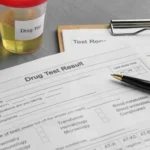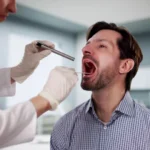Medication Assisted Treatment for Alcohol
How MAT Works for Alcohol Use Disorder Treatment
Table of Contents
ToggleUsing medication assisted treatment for alcohol is a powerful tool in the battle against alcohol addiction. It can be extremely difficult to break the pattern of alcohol consumption given the withdrawal symptoms that are likely to arise, but MAT medications can go a long way toward willing this battle.
Don’t allow your severe alcohol use disorder to proceed another day without reaching out for help. Contact the supportive team at Icarus Wellness and Recovery right away to talk about your situation and learn more about our substance abuse treatment options. The care we offer to treat alcohol abuse is always personalized to meet the needs of the individual.
This might feel like an impossible hill to climb, but the journey starts with just one step – and you can take that step today. Connect with us now and let’s work together to find a way forward.
What is Medication Assisted Treatment?
As the name suggests, medication assisted treatment is the practice of using specific, approved medications to help combat substance use disorders. MAT can be used to treat many different types of addiction, including alcohol use disorder. Many people have heard that this treatment approach is an option for opioid addiction, but it isn’t as commonly known that it can be an effective treatment for alcohol abuse, as well.
When alcohol use disorder medications are used correctly, they can be incredibly effective. A number of positive impacts can be experienced, starting with the reduction of cravings. You may also experience fewer withdrawal symptoms when MAT medications are used, and it will become more likely that you are able to both get sober and maintain that sobriety over the long run.
Why Alcohol Addiction is So Hard to Overcome Alone
Alcohol is one of the most commonly used substances in the United States. It is socially accepted in most places, despite the harm that it does to so many people. There are many reasons that people choose to drink alcohol, and they often have nothing to do with the alcohol itself.
Often, drinking starts as a way to fit in and feel accepted within a group. Only later do the serious health and addiction issues develop, and it’s common for people to look back and wish they never had that first drink.
The Importance of Support When Seeking Sobriety
Once you start drinking, and if that drinking turns into alcohol use disorder, it is extremely difficult to stop on your own. You might find that you want to stop drinking but aren’t able to successfully do so.
The addiction can be powerful, especially if you have been drinking for a long time, or if you are a particularly heavy drinker. Simply putting down the drink one day and never going back sounds like a great plan but executing that plan in the real world is a monumental challenge.
Powerful Withdrawal Symptoms
The alcohol cravings that hit you soon after you stop drinking are difficult to manage. But they are only a starting point to what alcohol withdrawal likely has in store. The withdrawal symptoms can be overwhelming, and in some cases, potentially life-threatening.
Many unpleasant symptoms are likely to start only a few hours after you stop drinking and your body attempts to adjust to this new reality. Nausea and vomiting are common, as are violent shaking and tremors. You will find that your body is sweating even if it isn’t hot, and you may feel anxious about everything going on around you.
Rest and Restoration of the Body During Alcohol Detoxification
Sleep is hard to come by during the detox process, and you may even have hallucinations along the way. If you find yourself dealing with delirium tremens without the support of a medical professional, your life could be in jeopardy.
This is an intimidating list of physical and mental health symptoms. It’s hard to overstate the challenge that quitting alcohol presents. Understanding the seriousness of the situation takes us back to the importance of considering medication assisted treatment in this process.
Getting help from pharmacological treatment won’t necessarily make detox easy, but it will make it easier and safer. MAT treatment has been proven effective for many people over the years and you could be yet another success story.
FDA Approved Medications Available for Alcohol MAT
There are various options that can be used when MAT treatment is applied to alcohol use disorder. Specifically, three drugs are commonly used, each with slightly different characteristics. The medical professional you work with in this process will determine which one is right for your needs.
The three drugs frequently used for this purpose are Naltrexone, Acamprosate, and Disulfiram. Let’s take a quick look at how each of these three works to help deal with substance misuse for someone who is battling alcohol addiction.
Naltrexone
The primary benefit of using Naltrexone is to reduce alcohol cravings by making the experience of drinking alcohol less pleasurable. The pleasure response that comes from opioid receptors in the brain is blocked while on this drug, and as a result, alcohol is simply less appealing.
It is important for an individual to make it through at least 7-10 days of detox without any alcohol consumption before this drug is started. Given its ability to reduce cravings, this is a popular tool in the battle against alcohol use disorder.
Acamprosate
This is a drug that is often administered to individuals who have disrupted their brain chemistry as a result of long-term alcohol use. For many people, it will cut down on some of the lasting symptoms of alcohol withdrawal, including insomnia and anxiety. Patients treated with this drug also won’t develop a dependence on it.
Disulfiram
Creating unpleasant sensations when alcohol is consumed is a powerful way to take away the motivation to drink. That’s the approach behind the use of Disulfiram. Where Naltrexone makes alcohol less pleasurable, Disulfiram makes it downright unpleasant.
When alcohol is consumed after Disulfiram is taken, the individual may experience issues like nausea, headaches, chest pain, vomiting, and difficulty breathing. Given the consequences, abstaining from alcohol will start to look like the more appealing alternative.
Get Effective outpatient Rehab Options at Icarus IDAHO
Combining MAT with Behavioral Interventions
A medication regimen alone is unlikely to break an alcohol addiction. For that, therapy and other types of interventions will be needed, along with the alcohol use disorder medications. The goal of these treatments is to address the root causes of addiction, determine why the individual turned to alcohol in the first place, and find healthier coping strategies that can be used moving forward.
Cognitive Behavioral Therapy is a major player in this space. This type of therapy helps people change negative thought patterns and replace them with more productive, positive ways of thinking. Treating substance abuse of all types is made easier when CBT is deployed.
Group therapy can also play an important role in this process. Going through group sessions allows for a sense of community to be created, and each individual in treatment will see that they aren’t alone in this experience. Others are facing the same challenges and plenty of motivation to move forward can be found from this sense of camaraderie.
The Importance of Medically Supervised Detoxification
Detoxing from ongoing alcohol use can be dangerous. Rather than initiating treatment right from the start, many people attempt to quit on their own using the “cold turkey” method. This can be a big risk, unfortunately.
Without the help of a medical practice to oversee the situation and monitor symptoms, it’s possible to put your life at risk. Many people have landed in the emergency department while trying to detox on their own.
When you go with medically supervised detox from the start, you avoid the risks that come with doing it solo. The medical team on your side can provide support around the clock, stepping in when anything about your condition strays into dangerous territory.
Medications can also be administered during this phase to ease your symptoms and help you move into inpatient treatment successfully.
Inpatient and Outpatient MAT Options
While many people will go into inpatient treatment after detox, that isn’t always the path that is followed. For some, detox followed by outpatient treatment will be a sufficient approach.
This is something that is decided on a case-by-case basis depending on a range of factors, such as length and severity of alcohol use, any co occurring disorders, and more.
With inpatient treatment, you will be living in the rehab facility while getting various forms of care around the clock. Therapy sessions will happen daily, medication management will be provided, and you will get used to structured routines that help you build a life free from alcohol.
Of course, an outpatient MAT program is going to look a little different. Specifically, you won’t be living at the facility, although you will still be spending a significant amount of time getting treatment as part of your recovery.
Both inpatient and outpatient programs are evidence-based, and their efficacy is backed by the Substance Abuse and Mental Health Services Administration (SAMHSA).
Therapy sessions and group meetings will be frequent, and medical check-ins will be necessary to confirm that the medications you are taking are working as expected.
Seeing the Bigger Picture
Using medication assisted treatment is not about short-term sobriety. Rather, this is a step that is taken as part of the bigger journey toward long-term recovery. You shouldn’t be thinking of this as a quick fix or an easy way to get off of alcohol. Instead, it’s a component of a carefully designed program that will lead you to the life that you want to be living.
When used properly, MAT can help to prevent relapse and improve treatment retention rates. It can also reduce the severity or frequency of cravings, and it can even support emotional healing.
The big picture of MAT requires that you think of plenty of other elements along with medications, including therapy sessions, lifestyle changes, support groups, and more.
By putting as many pieces of the puzzle together as possible, and by stacking the cards in your favor, a return to alcohol abuse will become less and less likely with each passing day.
Ignore Any Stigma Around MAT
For some reason, there remains a stigma around using medication assisted treatment in some circles. Don’t fall into the trap of listening to any of that talk. Refusing to use medication properly as part of a proper treatment program would be missing out on a powerful tool that can help you overcome this challenge in your life.
That’s not to say that MAT is going to be right for every person. Recovery is a personal process, which is why we always emphasize custom treatment programs for our clients. For some, MAT will be a great fit, while it won’t make sense in other cases.
And that’s okay. There is no right or wrong here. As long as you are working toward your goal of lasting sobriety and you are doing it in a safe and effective manner, that’s what matters.
If you wouldn’t think twice about using medications to treat another type of health condition, you shouldn’t think twice about using medications for alcohol addiction. If it is recommended by a medical professional as an appropriate option, this is a form of treatment that should get your full attention and consideration.
Is MAT for Alcohol Right For You?
So, who does MAT tend to work for? As a starting point, it may be a good option if you have already tried to quit on your own – perhaps many times – and found yourself relapsing. It’s hard to quit drinking alcohol, and if you have been down that road without lasting success, utilizing medications to achieve a better outcome is a logical choice.
Everyone who quits alcohol has some degree of withdrawal symptoms. For some people, however, those symptoms are particularly powerful and intense. If that is the reality for you, using medications may make it possible to get through those withdrawals where you haven’t been able to otherwise.
The physical strain of detox may just be too much to deal with based on the symptoms you experience, but medications could make all the difference in finally making it possible to come out on the other side.
Using MAT Treatment for Alcohol Use Offers Flexible Support
Finally, using MAT may help you break through the motivation barrier that has been keeping you from succeeding in recovery. If you find your motivation waning shortly after you start detox, and you wind up turning back to alcohol as a result, you may end up more motivated with MAT (likely in part due to the lessened withdrawal symptoms).
Whatever the reason may be, if medication assisted treatment is what it takes to help you slay the monster that is alcohol use disorder, this path is the logical one to take.
Up To 100% of Rehab Costs Covered By Insurance
Get Started With MAT Support to Overcome Alcohol Today
Have you been putting off getting help with your alcohol dependence for months, or even years? It’s easy to fall into that pattern, but nothing is going to change without actively addressing the problem.
Consuming alcohol will continue to have a negative impact on every part of your life until something is done to break this pattern.
Let’s confront this substance use problem by starting your medication assisted treatment right away. This approach will help to prevent withdrawal symptoms and put you on the road to recovery that could last a lifetime.
Call and talk confidentially with an admissions coordinator about getting support for sobriety now!
Recent Post
-
What Time Can You Buy Alcohol in Idaho?
-
15 Recovery Journal Prompts (You Can Really Use!)
-
Is Kratom Legal in Idaho?
-
 Our REBT Therapy Worksheets and PDF
Our REBT Therapy Worksheets and PDF -
Our IFS Therapy Worksheets and PDF Resources
-
What Happens If You Fail A Drug Test on Probation in Idaho or Nationwide?
-
Can You Check Yourself Out of Rehab?
-
How Long Does Alcohol Stay in Saliva?
-
Does Medicaid Cover Rehab in Idaho?
-
Our Cognitive Processing Therapy Worksheets to Support Recovery
-
What Is The Fentanyl Fold?
-
Can BPD Cause Hallucinations and Psychosis?
-
Does Tricare Cover Dual-Diagnosis Treatment?
-
Can You Have BPD and Bipolar Disorder?
-
How Long Does Alcohol-Induced Depression Last?


















